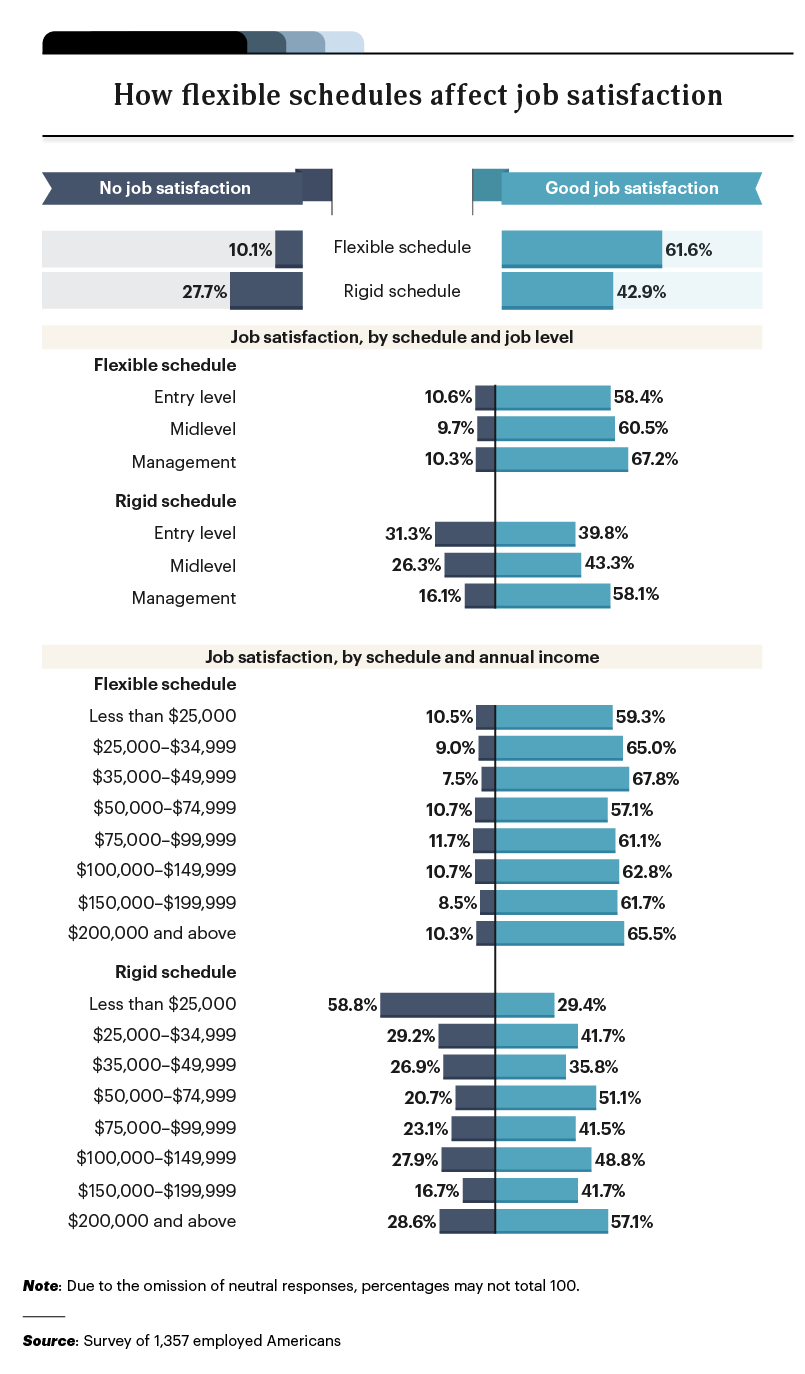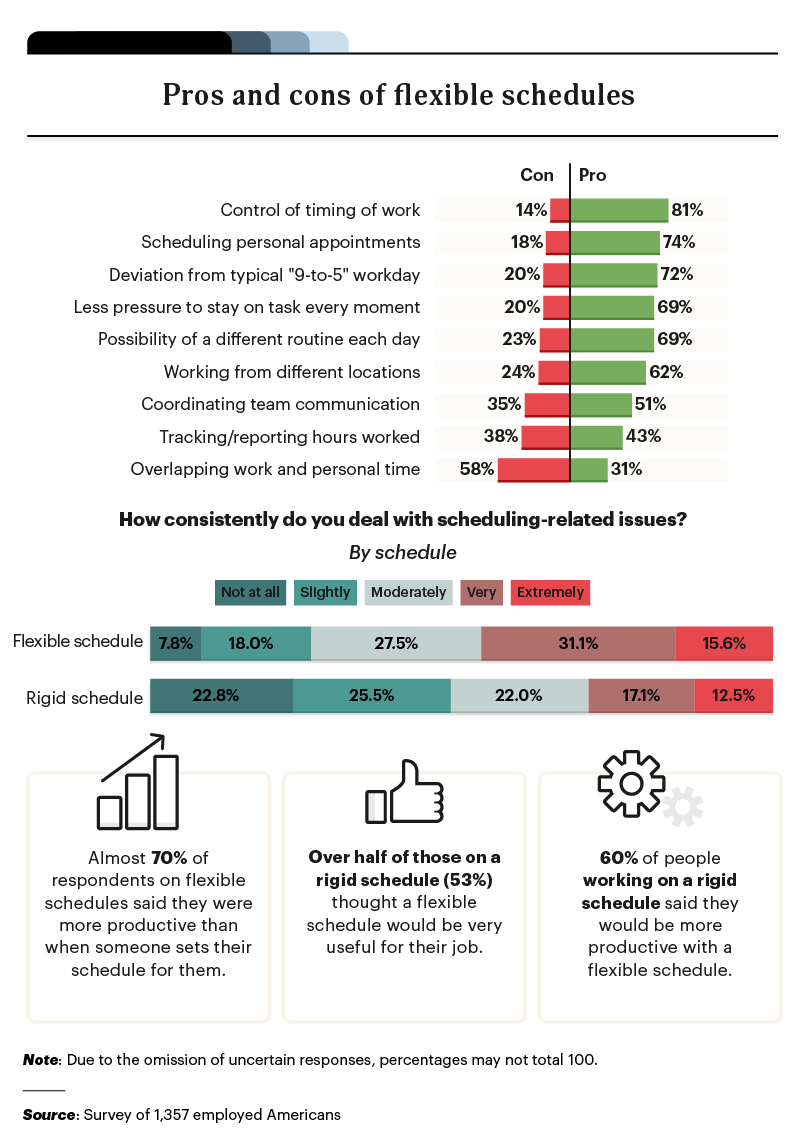How companies can use flexible scheduling to recruit, retain essential talent
A Paychex study sheds light on the future of hybrid work and offers guidance on how employers can help staffers strike a healthier work/life balance.

Scheduling plays an immense role in job satisfaction.
Regardless of job function, the structure of how and when work gets done makes an outsize impact on whether employees excel or burn out. But what sorts of scheduling arrangements are workers seeking after enduring so much pandemic-era suffering, unpredictability and angst?
To find out, Paychex spoke with more than 1,300 employees across a range of roles about the flexibility they’ve been offered at work—and how it’s affected their satisfaction and stress.
The findings include:
- Just 41% of companies offer flexible scheduling as standard practice or as a company perk, while nearly 1 in 10 professionals are working a flexible schedule because they negotiated for it.
- Entry-level employees working rigid schedules (31%) are the most likely to be unhappy with their job, while 6 in 10 rigid-schedule workers say they’d be more productive working flexible hours.
- Sixty-three percent of people working flexible hours report having good work-life balance, compared with 48% of those with rigid schedules.
- Sixty-nine percent of those working flexible schedules say scheduling will be important to them in a new job, as do 36% of people working a set schedule.

Image via Paychex
A matter of competition, productivity and profitability
According to Yamile Haibi, an HR and DE&I specialist with Paychex, addressing employees’ scheduling concerns is an urgent matter of productivity—and profitability. “Keeping an engaged and talented workforce is one of the most effective ways employers gain business advantages, including profitability, in the marketplace,” she says, adding that flexible scheduling is an easy way to retain and attract key employees, and to lift overall employee productivity.
Haibi notes that Paychex’s recent data reveals that the ability to work flexible hours “was most appealing to the youngest generation of workers (Gen Z), and 7 in 10 professionals who are already working flexible schedules indicated they felt more productive as a result.”

Image via Paychex
Haibi says that companies willing to offer flexible work schedules are also “better able to leverage the skills and talents of a diverse workplace,” explaining that many companies now have five generations of employees to cater to: Traditionalists, Baby Boomers, Gen Xers, Gen Y, and Gen Z. “These companies have the advantage of the experience and expertise of older workers as well as the enthusiasm and ingenuity of younger generations,” she says. Though the onus is on employers to go beyond age and demographics to ensure workers’ individual needs, preferences and conflicts receive ample consideration.
Flexibility is also a core issue for women, parents and caregivers. As Haibi notes, millions of women, especially mothers, have either exited the workforce during the pandemic or been forced to take on reduced duties. This exodus continues to sap workplaces and economies around the world—to devastating effect. Companies eager to recruit and retain women during this time should consider flexibility table stakes (yet also a potent weapon) in the war for talent.
“Given that 4 in 5 of the women we spoke with prefer flexible work schedules,” Haibi says, “companies that allow their employees to determine their hours could have an advantage in attracting female hires,” and that bringing women back on board “could give employers a more competitive advantage in their markets and industries.”
The same goes for parents and caregivers, many of whom are still dealing with pandemic-fueled closures and unpredictable schedules at home. As Haibi puts it, “Autonomy over scheduling may also be a much-needed perk for parents, as nearly 65% of people with children at home say that a flexible schedule provides a good work-life balance, compared to just over half (51%) of parents with rigid work schedules.”
Read the rest of Paychex’s study to glean more insights into the future of flexible scheduling.







